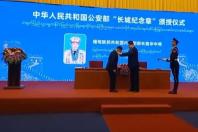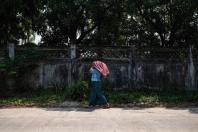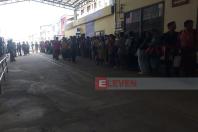Question are aplenty now over the fairness of the election as places that are barred from the election are places with strong ethnic party support and a weak foothold by larger parties, including the NLD.
For the 2020 general election, the Union Election Commission (UEC) had announced that there will be 330 lower house constituencies, 168 constituencies with 12 constituencies per region or state, two constituencies per township in state or regions for a total of 644 constituencies for the regional parliaments as well as 29 constituencies that are for ethnicities.
However, the UEC hinted on September 2 that five townships in the "Wa" region as well as several regions in Rakhine State will not likely see the election.
"The main area will be Wa where there were no elections for 2010 and 2015. Those five townships and some constituencies in Rakhine. But some areas might be possible provided we take appropriate security measures. Some areas, it is not possible to hold elections for the whole town because it consists of two halves, two constituencies. So it might be possible to hold it a no.1 constituency and so on. Some places the township itself can hold elections but not for villages and village tracts," said UEC member U Myint Naing.
He also said that constituencies are being looked at and the list of places where the election will be held is to be announced as the election draws closer in October.
"Details such as whether the whole township, only one, some village-tracts or wards will see election and all that will be announced in advance," he continued.
He was then asked to speculate how many could there be, to which he replied that it might be just limited to the five townships in "Wa" region and around two townships from Rakhine State.
The list announced
On October 16th, the UEC announced the no-election list which contained all constituencies in 9 townships in Rakhine State as well as several locations across 6 states and regions.
For Rakhine, they are to be Pauktaw, Ponnakyun, Yathaedaung, Buthidaung, Maungdaw, Kyauktaw, Minbya, Myaypone and Myauk-U townships as well as 3 wards and 52 village tracts in Kyaukphyu Township, 3 wards and 29 village tracts in Ann Township, 4 village tracts in Sittwe, 10 wards and 52 village tracts in Taungngup.
In Kachin State, one village tract in Khaung Lan Phoo, 30 village tracts from Sumprabum, 15 village tracts from Machanbaw, 22 village tracts from Mansi, 21 village tracts from Moemauk, 9 village tracts from Shweku, 9 village tracts from Chiphwe, 8 village tracts from Sawlot, 2 village tracts from Taning, 13 village tracts from Waingmaw, 6 village tracts from In Gyan Yan.
In Kayin State, 2 village tracts from kawkareik, 9 village tracts from Kyarinseikgyi, 25 village tracts from Pharpon, Pyinmaseik village tract in Pha An, 8 village tracts from Thandaung Gyi, and 3 from Myawaddy are among the cancellation list.
Bawnawkhee village tract in Belin, Mon State, 12 village tracts from Kyauk Gyi and 30 village tracts from Shwekyin in Bago Region and some village tracts in Shan State are among the cancellation list.
For Shan State are 6 townships which are Mongla, Pangkham, Namhkam, Mongmaw, Pangwaun, Mong Kung, 12 village tracts in Kyaukme, Seikphu village tract in Naungcho Township, 3 village tracts in Namhsan, 2 village tracts in Man Tong Township, 4 village tracts in Mong Khet Township, 2 wards and 13 village tracts in Mong Yang Township, in Lon Kaunt village tract in Mong Hpyak Township, 8 village tracts in Mong Yawng Township, 4 village tracts in Kutkai Township, 1 ward and 9 village tracts in Muse Township, 17 village tracts in Mongmao Township, 3 village tracts in Mong Tong Township, 11 village tracts in Tangyan Township, 6 village tracts in Lashio Township, Mong Pyein village tract in Kunlong Township, Hon Aite village tract in Konkyan Township, 5 wards and 37 village tracts in Hopang Township will be also excluded for election.
For the Bagon Region, there will be 12 village tracts in Kyaukkyee Township and 30 village tracts in Shwekyin Township that will not be seeing a free and fair election.
Confusion surrounds some Rakhine constituencies
It is currently the second wave of the COVID-19 pandemic in Myanmar. It started on August 16 where a bank staff in Sittwe, Rakhine State was tested positive for COVID-19. It had since surged and the whole of Rakhine has been put under a stay-at-home program.
There already were speculations that, due to the battles between the military and the AA, certain townships in Rakhine will not see the election happen but expectations of observers were betrayed when the UEC officially announced.
In it, there were 9 whole townships that will not be holding an election. This caused dissent between the Rakhine ethnic parties as Pauktaw, Ponnakyun, Yathaedaung, Buthidaung, Maungdaw, Kyauktaw, Minbya, Myayphone and Mrauk U will not go through the election.
These 9 townships held elections during 2015. On top of that, Sittwe, Taungngup, Ann and Kyaukphyu will see its 152 wards and groups will not go through the election.
U Hpay Than, policy committee member of the Arakan National Party (ANP) and lower house candidate for the now-excluded Myaypone Township, says that it will be an election with low amount of representation of the public as Rakhine State will see over half of its constituencies barred from the election.
"Since elections cannot be held for over half of Rakhine State, this will be an election with low amount of people representation. The mandate will be weaker since parliaments and regional governments will become ones that do not fully represent the public," said U Hpay Than.
A look at 2015 polling results
According to results from the 2015 general election, the local ethnic representative parties all won the seats for the 9 townships that are now excluded.
The ANP won all 9 townships there. They also won all nine seats in the Upper House.
Similarly, for constituency 1 and 2 for the regional parliament, the ANP won 16 seats out of total 18, while the Union Solidarity and Development Party (USDP) won the 2 remaining seats. Perhaps what is most striking is that the ruling party National League for Democracy (NLD) did not win any spot in those 9 townships for lower and upper houses as well as the regional parliament.
This raises suspicion whether the 9 townships were left out because they were all places the ANP had won, according to U Tun Thar Sein.
"It is suspicious whether the townships that our party won were left out on purpose. I don't even know where to begin. Even though we are citizens, we will be losing our rights as citizens because we will be different from other states and regions. We feel oppressed," said U Tun Thar Sein.
ANP's Pauk Taw Township No.2 constituency MP U Aung Kyaw Htwee say that this is to block the ANP from regions won in the 2015 election.
"I see it as a block to places that ANP will win," he said.
Different from the field situation
Local ethnic parties have pointed out that the claim by UEC for not being able to hold a free and fair election in those 9 townships is not in line with what is actually happening.
"We were told that these townships cannot offer security from defence and home affairs. That they were not safe and thus a free and fair election cannot be held. So speaking for the township that was left out, we will not have a representative for the locals in our parliaments. This is a huge loss for the voters. And there are now battles going on in Pauktaw. There isn't even one gun fire that was heard there," said Mrauk U Township's regional parliamentary candidate U Tun Thar Sein.
MP Daw Khin Saw Wai from the ANP, representing the Yathaedaung constituency, demanded that the UEC must be transparent with the people as to why certain constituencies were included in the list of 9 townships excluded from elections, despite having no occuring conflicts.
"Amongst the 9 townships, Pauktaw Township definitely doesn't see any battles. Sittwe is included but as to why Pauktaw, a township with no fighting, was included in the list must be made transparent to the people. If it was just conflict zones then it could be said that the UEC did their announcement as per election laws. But now, Maungdaw isn't a battle zone but Buthidaung currently is. Even if Maungdaw has very little people, it can still be held there. I would like to request the UEC to clarify why they have chosen places that are not currently seeing battle. I want to know the UEC's reason," said Daw Khin Saw Wai.
U Hpay Than says that choosing non-conflict areas like Pauktaw Township to not have an election means that they do not want to hold it in areas that the ANP will win.
"There are no battles in Pauktaw. That is why we are worried about the true political situation. It is disheartening to see a stable township being removed from the political process. And I see it blocking the ANP from places that it would win," said U Aung Kyaw Htwee.
Kyauktaw Township candidate U Tun Hla from the Arakan League of Democracy (ALD) believes that by excluding non-conflict zones, it is breaching the rights of citizens eligible for voting.
"Kyauktaw is seeing some battles but Pauktaw isn't or rarely occurs. I think it should be held in those places. It also causes locals to worry more because now they are thinking whether their home will become a warzone soon and thus the election is not to be held. The people are placing hope on their representatives. Since they cannot express their needs and difficulties, they are asking help from their representatives. Some have contacted us to express their sorrow because now they will not see an election. They lost their rights," said U Tun Hla.
The ANP was poised to compete in all constituencies within all 17 townships of Rakhine State.
U Thurain Htut, Secretary of the Rakhine State branch of the UEC, claims that they were not asked any questions before the announcement came despite having many of Rakhine State's township included in the no-election list.
"They didn't ask anything. We do not know any details too but we heard that they asked internal affairs, defense and the union government. They probably acted on their recommendations. It didn't come from us," said U Thurain Htut.
He said that Rakhine was already ready for the election.
"Of course we want it to be held in our area. Everything was ready. And our job is to make sure the election happens. Now that it is not happening, we don't know what to say," remarked U Thurain Htut.
Comparison of battles fought in Rakhine and in Chin
The Executive Director of Myanmar Institute of Peace and Security (MIPS) Dr. Zaw Min Oo wrote on his Facebook page on October 17, demanding the UEC to provide reasoning behind their decision to hold the election in Paletwa Township, where the highest amount of fights had occurred, while some townships in Rakhine that see no battles were barred.
"When instituting democracy, it is the nature of the system to have parties win or lose. But when questions arise on the fairness of the election, the party that rose to power even through the votes from the people will have a black shadow attached to them," he wrote.
Aside from Dr.Zaw Min Oo, local ethnic parties had also pointed out that Paletwa Township in Chin State, an ongoing battleground, was not excluded from the list of no-election places.
According to Dr.Zaw Min Oo, Paletwa saw 90 battles in 2020 alone but was not included in the list by the UEC.
Despite that, the UEC had included Pauktaw saw zero battles, Yathaedaung that saw 80 battles, Buthidaung that saw 37 battles, Maungdaw that saw 9 battles, Kyauktaw that saw 67 battles, Minbyar that saw 52 battles, Myaypone that saw 24 battles and Mrauk U that saw 19 battles.
Additionally, Kyaukphyu that saw only four battles, Ann that saw 23 battles, Sittwe that saw 3 battles and Taungup's village tracts that saw only 1 battle in 2020 were included in the UEC list.
Thus the local ethnic parties found cause to question the decision to stop the holding of election in many states that either have no battles or substantially less battles than that of Paletwa Township in Chin State.
Member of the Central Executive Committee for the Arakan Front Party (AFP) U Sein Chit demanded that UEC clarify to the people the reasoning behind their decisions.
"My opinion is that of questions to the UEC. How did they come to the conclusion that they will not hold the election due to what reasons? In our Rakhine State, Pauktaw did not hear even a single gun being fired. In contrast, Chin State's Paletwa is one that hears a lot of it. It is confusing because if they decided due to ongoing battles then why was Pauktaw also chosen? Why isn't Paletwa amongst the list? This is a situation where the UEC must be pressed for answers. I believe that either the government or the UEC must be transparent to the voters, the people," said U Sein Chit.
The Shan similarity
Some constituencies within townships and wards in Shan State were also part of the no-election list from the UEC despite having no battles.
In the announcement on October 16 by the UEC, areas under control by the "Wa"; Panghsam, Namhkam, Mongmaw, Pangwaun and NDAA's Mongla, including Mong Kung were all included. A total of 140 village tracts across 17 townships were also barred from the election.
Shan State election commission's Secretary U Zaw Myint Win had claimed that the reasoning behind the decision was possibly due to the unstable situation of the areas chosen.
But the local ethnic parties had criticized the commission for not holding elections for areas that definitely have no fighting.
Shan National League for Democracy (SNLD) joint-secretary (1) Dr. Sai Kyaw Nyunt said that there are no battles in Taw Ywat Village Tract in Muse Township, Man Hal Village Tract in Lashio Township as well as Mong Kung Township despite the commission's excuse that a free and fair election is not possible.
SNLD's lower house candidate for Lashio Township U Sai Wan Hlaing Kham remarked that he did not understand the commission's decision to not hold the election.
"We asked our district (branch of the election commission) directly. They say they did not submit anything but it all came included in the list. We cannot understand this. Man Hal Village has no problems. We simply see it as foul play. Are they doing because they are afraid of not winning? There are more dangers present in Yangon and Mandalay where COVID-19 is raging. Their excuse for a free and fair election can hold no ground. Man Kat region is also where we conducted field campaigns. There are no battles there. Man Hal is close to Lashio town also. We cannot understand this. We are fairly strong in Man Hal but also the NLD. I think the central UEC is doing things willy nilly. It is as if they looked at the map and then decided without consulting with township and district levels," said U Sai Wan Hlaing Kham.
Muse Township's Taw Ywat Ward Adminstrator U Sai Kyaw Myint had also asked for clarification as to why the election was barred from there despite ongoing peace and stability.
"The UEC must answer to us why we are not allowed to vote. Why did they forbid this? They have to answer to the residents of Taw Ywat Ward who are living in peace and why they are not allowed to vote," he said.
Muse Township SNLD's Chairman U Sai Hla Pe expressed his shock and despair at decisions to target one ward to prevent the election from occurring.
"In truth, if it is for security reasons then it is a ward in town. The region has no problem. If for health reasons, there are no COVID patients. It is surprising that they will pick this one ward to stop the election and it is saddening. The main thing is the major loss of rights of the voters," said U Sai Hla Pe.
Muse District's election officer U Aung Kyaw Soe claimed that his local branch of election commission had no prior knowledge that Taw Ywat Ward in Muse Township and 4 Village Tracts in Kut Kai would be barred from the election, especially having been submitted to the UEC that those places were good for the election to be held.
"We have submitted that all polling stations in all villages for Muse District were able to hold the election. We only know now when the UEC announced the list. We found then that a major ward in Muse was included. The other one is the No.2 constituency. For the 4 village tracts in Kut Kai, the field level staff and secretaries in their own villages have carried out releasing the voters list. We have prepared for all voters in Muse District to be able to vote. Now that this has happened, we will all be meeting and then submitting (appeal). On Monday, we will be meeting with parties and explain the situation to them. These are not what we submitted. We submitted that every place can hold the election. After we meet with the parties, results should show," said U Aung Kyaw Soe.
SNLD's joint-secretary (1) Dr. Sai Kyaw Nyunt requested the commission to answer with the reasoning why they had stopped election from occurring in places that ethnic parties have a strong presence in.
"When we assessed the overall situation, they were all places that ethnic parties were strong in but not the Bamar parties. Even if it isn't true, it raises suspicion. If we mull on it even more, more and more suspicion can rise," said U Sai Kyaw Nyunt.
Despite being barred in 2020, Mong Kung Township held its election in 2015.
According to voting results from 2015, the SNLD won seats in Mong Kung for both lower and upper houses as well as the regional parliament.
Usually, Mong La, Pangkham, Namkham, Mong Maw and Pangwaun townships were ones that cannot accommodate for the election. The UEC will also usually tag along Monghsu and Kyethi Townships with the aforementioned 5 townships but local ethnic parties expressed shock at the decision to include Mong Kung Township despite having held elections before.
"The UEC of this era, especially when we are touting a democratic government, must strive to hold free and fair elections in places that couldn't before. But that had not happened but instead regressed to a point where we cannot even fathom the reasoning behind their decision. If they are making such decisions to remove (places), we are finding it hard to analyse and rationalise," said U Sai Kyaw Nyunt.
The SNLD was to be racing in most townships apart from the 4 "Wa" townships and Mong La. But since the removal of some constituencies, he remarked that the voting rights of citizens are now limited.
Kachin, Kayin, Mon and Bago
Despite having no township-wide removal from the election process, 192 village tracts in 11 townships across Kachin State were barred.
The deputy chairman of Kachin State People's Party (KSPP) Gumgrawng Awng Hkam said that the 11 townships were indeed places that elections couldn't be held in the past but now, some of them definitely could.
Similar to the previous election, around 200 village tracts in Khaung Lan Phoo, Sumprabum, Machanbaw, Mansi, Moemauk, Shweku, Chiphwe, Sawlot, Taning, Waingmaw, In Gyan Yan townships were removed and most of them were where there is strong support for the local ethnic parties.
"The NLD seems to be only focusing on holding onto power. Reconciliation between the different ethnicities are not in their heads. Peace is not on their minds but only to win in the 2020 election. I want to accuse them that they are only thinking of that. All of these are things that should not be," said Gumgrawng Awng Hkam.
Kachin State's election commission Secretary U Tun Aung Khine said that places in Kachin State that are not suitable for the election are ruined villages, war refugee villages and village tracts under the control of the KIA ethnic armed group.
"These areas have around 82 village tracts that are already ruined. Nobody stays there. Home affairs would still have them listed but in reality, they no longer exist. They are just names on the map. Many similar villages are still in the list for home affairs ministry. They are trying to update them but have yet to complete. That is why they announced that they cannot do it because no one lives in those places anymore. They only exist on the map. There are around over 80 locations like that," said U Tun Aung Khine.
He continues on by saying that there are a total of 192 village tracts in Kachin State that aren't suitable for an election; 87 that are deserted, 66 that are under control of the KIA, 19 that are made up of refugees and 20 others that are deemed a security risk.
He also says that there have been no list or data collected regarding the people living there or commission branches formed.
"Places under control of the KIA originally weren't places that were conducive to voting," said U Tun Aung Khine.
He further goes on to state that apart from the list of places in Kachin State that will not be seeing the election, the list of voters and everything else remain the same.
For Kayin State, the UEC announced on October 16 that some village tracts in
Kawkareik, Kyarinseikgyi, Pharpon, Pha An, Thandaung Gyi and Myawady are among the cancellation list.
For the Bagon Region, the announcement from the commission said that 42 village tracts in Kyaukkyee and Shwekyin townships will not see an election.
For Mon State, Bawnawkhee Village Tract will not be a part of the election.
Regarding the Bawnawkhee Village Tract, Secretary of the USDP U Win Maw Oo said, "Since a while back, that village does not exist anymore but was still listed in the home affair records. There used to be 56 village tracts in Belin Township and when the general administrator reformed them, it became jsut 55. And the Bawnawkhee Village is part of the Kayin State as it is placed on the front bank of the Donthami River, according to the KNU map. So technically the portion of the village at the opposite bank in Belin was ruined. So home affairs still has it in their list but the village isn't there anymore."
He continued to say that in the 2010 election, there were around 9 villages that were eligible for election. In 2015, the amount was slightly reduced and it wasn't a problem that Bawnakhee was removed for the 2020 election.
"Each respective party with their representatives took to the field to campaign. If they were able to announce in time, parties and representatives would fare better but now it is a mere few days away from the election and the no-election list came out, which put parties and their representatives in a bind. That is my opinion," said U Win Maw Oo.
What are the losses?
In the 2015 election, the records show that there were seven townships in Shan State and a total of 453 village tracts in Kachin, Kayin, Mon, Shan and Bago States and Regions that were not able to hold elections.
According to the UEC, Rakhine State will have 9 townships and Shan State will have 6 townships that will not be holding the election at all for the 2020 election. There will be 23 wards and 558 village tracts that will also be excluded in Kachin, Kayin, Shan, Mon, Rakhine and Bago Region.
There are now 23 wards and 105 village tracts more for the 2020 election.
For Rakhine State, since 9 out of the total 17 townships will not see the election, it will lose 9 lower house, 7 upper house and 16 Union Parliament seats.
For Shan State, 6 townships will not see an election therefore stand to lose 6 lower house seats. Both Shan and Rakhine combined will mean that 22 seats will be lost.
Thus, in the Union Parliament, the percentage will be 71.69% out of 75%, only 476 seats instead of the full 498.
People's Party chairman U Ko Ko Gyi expressed his worry on his social media page that as the Union Parliament requires 75% civilian MP approval for the military MPs to support certain efforts such as amending the constitutions. Now that there is only a little over 71%, the boundaries have shrunk.
"I write these words unsettled, as efforts to expand the bounds for the parliaments had shrunk it instead," wrote U Ko Ko Gyi.
The next party in line to lose are the voters. In 2015, there were 146,679,2 eligible voters in the whole of Rakhine State.
In 2015, there were 817526 voters in the 9 townships that are now entirely removed from the election.
There are 98159 voters in Pauktaw, 94810 in Ponnakyun, 87875 in Yathaedaung, 63069 in Buthidaung, 24008 in Maungdaw, 130730 in Kyauktaw, 117318 in Minbyar, 87111 in Myaypon and 141446 in Mrauk U, according to the 2015 election data.
If an election was not held in 9 of those townships, Rakhine State will lose over half of its voters.
SNLD's lower house candidate for Lashio Township U Sai Wan Hlaing Kham said, "The people losing their rights to vote without any strong reasons why should never happen no matter which party they will be voting for. But a democratic nation needs to be able to vote. We strongly condemn the fact that while other townships are able to vote freely, ethnic regions are losing a substantial amount of right to vote. This should never have happened and is totally unjust."
Questions are aplenty now over the fairness of the election as places that were barred from the election are places with a strong ethnic party support with weak foothold by larger parties, including the NLD.
The UEC, in order to prevent loss of voting rights by our ethnic citizens and for the right for ethnic party candidates to represent politically, must quickly reassess the list of no-election places and make amendments in order for ethnic parties to fulfil their heartfelt desires.

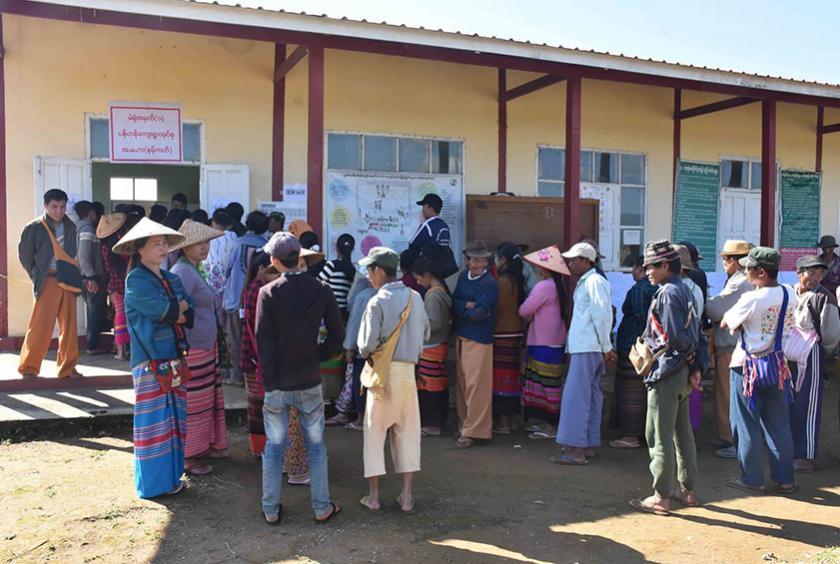
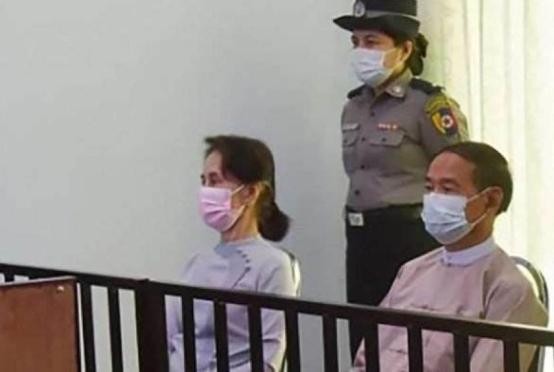
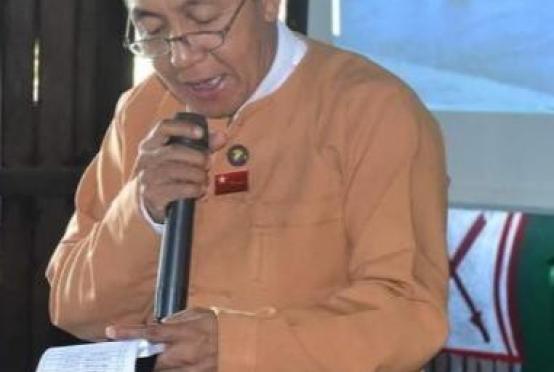


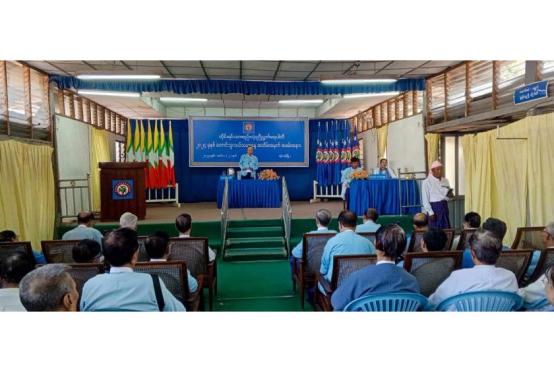
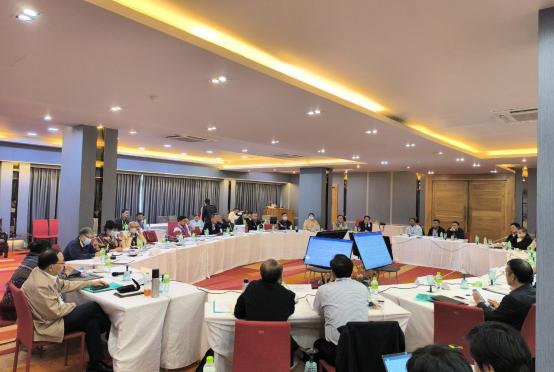
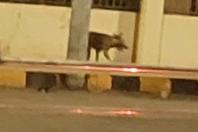
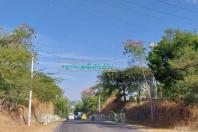
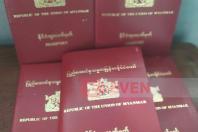
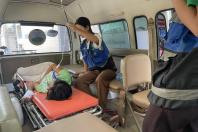
![[Photo credit: Shwe Yoathlwar charity group]](https://elevenmyanmar.com/sites/news-eleven.com/files/styles/most_read_img/public/news-images/plaza.jpg?itok=v6Gn0YGX)
